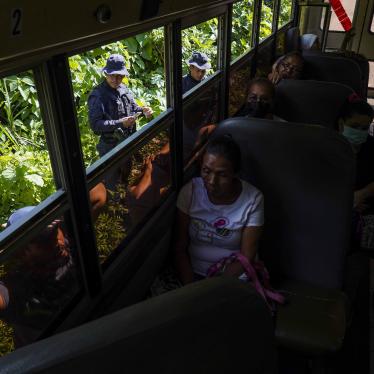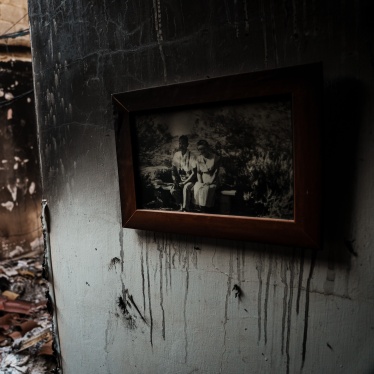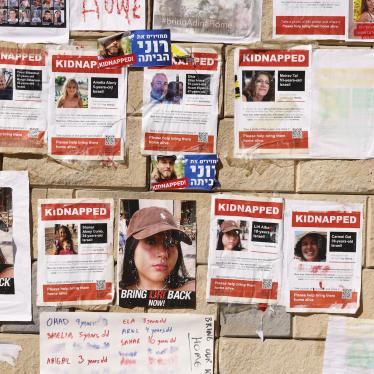(Washington D.C.) — Argentina's commemoration of its 1976 military coup reflects the considerable progress the country has made in addressing past human rights abuses, Human Rights Watch said today. Argentine President Néstor Kirchner participated in commemorative events today in Buenos Aires at the Military College and the Navy Mechanics School (ESMA), a notorious torture center during the military government.
"These ceremonies offered a symbolic yet powerful display of Argentina's new determination to confront its past and hold people accountable for the egregious violations committed during the years of military rule," said José Miguel Vivanco, executive director of Human Rights Watch's Americas Division.
In an event at the Military College commemorating the 28th anniversary of the military coup on March 24, 1976, President Kirchner presided while army chief Gen. Roberto Bendini removed from the walls portraits of two of the institution's former directors, Jorge Rafael Videla and Reynaldo Bignone. Both were leaders of the military juntas that ruled Argentina from 1976 to 1983.
In the afternoon, Kirchner visited the Navy Mechanics School (ESMA), a torture center where thousands of political prisoners were held before they "disappeared," and signed an agreement with the city government to convert the ESMA into a "Museum of Memory" for the "disappeared." The agreement stipulated that Argentine human rights groups would participate in the design of the project.
Kirchner, who took office on May 25, is the first Argentine president to hold public ceremonies commemorating the destruction of Argentine democracy and the massive human rights violations that followed the military coup.
Under the military government, at least 9,000 people were detained by military and police task forces, brutally tortured and secretly executed. Many were dropped from planes into the ocean.
For years, the "full stop" and "due obedience" laws—amnesties introduced in 1986 and 1987—have blocked prosecutions for all crimes committed during the period of military rule, except the theft of babies born to mothers held in secret detention. However, in August, the Argentine Congress voted by large majorities to annul the amnesty laws, a proposal firmly backed by Kirchner.
Among the cases reopened as a result of the congressional vote were crimes committed by 15 former ESMA agents. They included notorious former naval intelligence agent Alfredo Astiz, who was arrested on September 16.
The definite annulment of the amnesty laws awaits a decision by the Supreme Court, which must rule on appeals in several cases in which federal appeals courts have deemed the laws unconstitutional.
Argentina continues to roll back measures taken by earlier governments to prevent full accountability for the abuses. On March 19, federal judge Rodolfo Canicoba Corral declared that pardons issued in 1989 by the government of Carlos Menem benefiting six army officers were unconstitutional. The only officer still alive and not already in detention, Gen. (Rtd.) Jorge Olivera Rovere, was arrested on the same day.
In early March, the head of the navy, Admiral Jorge Godoy, publicly affirmed for the first time that the ESMA had been used to commit "aberrant acts that offend human dignity."





